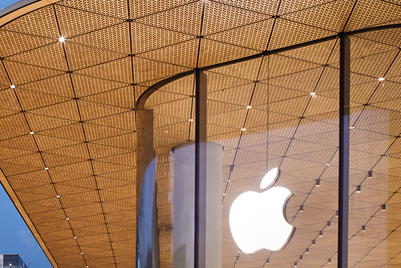
CHINA'S TOP 100 BRANDS
Luxury brand Chanel tops China's Top 100 Brand list for the second year in a row, maintaining its brand value on the back of Chinese consumers' desire for 'experiential luxury'.
Privately-owned Chanel's companions in this high-end section of the market are Gucci, which is up seven spots on the list to 21st position, and Armani, up eight places to 25, but Louis Vuitton dropped 13 points to rank 80 this year.
Chanel, notably, was one of the only brands to topple Samsung in Asia: the electronics giant ruled the roost in 11 other markets.
Chanel is one of the last luxury brands to sell online, with no official presence in mainstream B2C e-commerce and luxury verticals in China like JD/Farfetch's Toplife, Alibaba's Tmall Luxury Pavilion, Net-A-Porter China, Secoo, or Mei. This has fostered a prolonged perception of exclusivity and scarcity. Even on social media, Chanel follows back precisely none of its 48 million followers on Instagram and Twitter (and only 159 on its Weibo account). Aloof, much?
This strategy appears risky, given that recent marketing trends in the mainland gravitate strongly towards interactivity and engagement, but Chanel makes up for it offline through clever experiential marketing. Its latest Mademoiselle Privé travelling exhibition, a reimagination of the French couturier Gabrielle 'Coco' Chanel's life through Chinese artist Wu Guanzhen's eyes, touched down in Shanghai earlier this year to much fanfare.
Unlike Coco's bon mots, Uber's snappy slogans no longer appear to echo in the minds of the Chinese. This brand slid down more than 600 spots in the list, from 25th position last year to 683 today. In its heyday, before Uber sold its Chinese operations to rival Didi Chuxing (which jumped up the list from 48 to 5) in 2016, following a bitter fight for market share, Uber teamed up with folks like Ctrip (down from 241 to 403) to launch a series of co-marketing campaigns titled "one is enough". But Uber's slide down the list now is predictable.
What is less obvious is how big clothing brands like H&M (down 49 places to 365) and Adidas (down 10 places to 24) got mixed up in the Chinese government's indoctrination camps for the Muslim Uighur people in China's Xinjiang province. As revealed by the Wall Street Journal, these camps essentially supply slave labour for factories manufacturing for H&M and Adidas. That this entanglement in such a controversial topic resulted in consumers 'punishing' the brands in our ranking seems farfetched, but not impossible.
On a lighter note, Centrum, the multivitamin brand owned by Pfizer, zoomed all the way up from being unlisted in China's Top 1000 last year to 184th position this year, thanks, we assume, to British actor Tom Hiddleston's recent ad for the brand. Slammed by Western fans for being creepy, it was deemed brilliant in China, especially among female buyers drawn to Hiddleston's 'husband' persona in the creatively shot video.
Meanwhile, good news for Samsung (up from 4 to 3), Nestle (from 5 to 4), Sony (from 9 to 8) and Heinz (from 10 to 9) which added further international sparkle to the China portfolio with their strong brand recall and positioning.
Apple, however, may be dying a slow death, dropping three places down to 6. It not only suffered collateral damage amid trade tensions between the US and China but also disdain from Chinese media for its lack of innovation.
Don't miss the rest of our exclusive data and special reports:



.jpg&h=334&w=500&q=100&v=20250320&c=1)


.png&h=334&w=500&q=100&v=20250320&c=1)


.png&h=334&w=500&q=100&v=20250320&c=1)




+(900+x+600+px)+(2).jpg&h=268&w=401&q=100&v=20250320&c=1)


.jpg&h=268&w=401&q=100&v=20250320&c=1)
.png&h=268&w=401&q=100&v=20250320&c=1)

